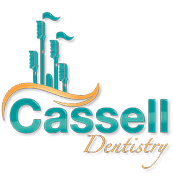Six Dental Implant Recovery Tips for Success
If you’re planning on having dental implant surgery in the near future, you’re probably full of questions about both the procedure and the recovery process. There is a fair amount to know, and all of it is important because after the procedure is complete, much of the success of your surgery will be contingent on how well you care for your new dental implants.
Take a look at these six tips for dental implant recovery so that you know what to do to ensure your mouth heals properly and that your surgery is a success.
Recovery Time for Dental Implant Surgery
If you’re the type of person who gets dental anxiety at a regular checkup, let alone a surgical procedure, try not to worry: dental implant surgery is generally a pretty simple process, and the pain associated with it is typically not severe or long-lasting.
Every mouth is unique, so each dental implant surgery is going to have slightly different requirements, but the typical recovery time is about 7-10 days. Pain may be considered within the first 48 hours but should gradually reduce in the following 24 and continue on that trend. If the pain does persist beyond about two weeks, you should consult your doctor or oral surgeon, as an infection may be to blame.
It should be noted that recovery times may vary depending on a few different factors. For example, if you’re getting more than one tooth extracted and replaced with a dental implant, that may extend the recovery time. Other factors include your oral health, your overall health, and whether or not bone grafting is required.
Expect Some Swelling
Expect a fair amount of facial swelling following your dental implant surgery. Swelling is a totally normal, even healthy, bodily reaction intended to protect the area of an injury. Although your surgery is in a safe and controlled environment, your body doesn’t know that, so it’s going to react to the injury as it always does.
The good news is that the swelling is likely to be totally gone within two to three days. In the meantime, you can always try to reduce the swelling by holding ice or another cold compress on it. Keeping a pattern of twenty minutes on and twenty minutes off over the course of a few hours with a cold compress should bring the swelling down a bit and reduce some of your discomfort.
If your swelling does not recede within about three days, or it recedes and then swells up again, that’s a sign of a potentially dangerous infection. Contact your oral surgeon or doctor right away.
Bleeding is Normal
A decent amount of bleeding from the site of the surgery over the course of the following two or three days is a common occurrence. If you find that the bleeding is excessive, don’t continually spit it out or attempt to rinse your mouth, because that may exacerbate the problem. Instead, insert a gauze pad into your mouth and bite down on it to soak up some of the blood, and apply some pressure to the wound.
Bleeding may be profuse in the hours immediately following surgery. If the heavy bleeding doesn’t subside after a few hours, or regular bleeding continues beyond the two or three-day period, consult your oral surgeon or doctor.
Brush Thoroughly and Floss Daily
In the 24 hours following your surgery, you’re likely to have too much swelling and pain to be able to brush or floss, but as soon as you are able, it’s imperative to continue your daily oral hygiene. Maintaining a healthy mouth by brushing thoroughly twice a day, and flossing daily, is always important, but it’s even more important when you’re caring for dental implants. Any food or plaque buildup around your implant can lead to a host of issues from infection, to improper healing, to tooth decay in the neighboring teeth.
Keep in mind that dental implants require the use of non-abrasive oral hygiene products. There are toothbrushes, toothpaste, flosses, and other products specifically designed to care for dental implants. Be sure to use them, or you may wind up damaging your implant.
In order to prevent infection, you will also be asked to rinse your mouth with warm salt water four times a day. It may sound unpleasant, but saltwater contributes to the healing process and cleans away potentially dangerous bacteria.
Habits to Avoid
To ensure your healing process goes as smoothly as possible, avoid the following habits:
Smoking
Smoking has been shown to slow the healing process of any oral surgery. Avoid all smoking during your recovery process, and try to avoid it after you’re fully healed, too.
Drinking Alcohol
Alcohol can also impede the healing process of dental implant surgery. After you’ve healed, there likely won’t be any ill effects of an occasional drink but avoid alcohol for at least four weeks following your surgery.
Drinking with a Straw
When you suck on a straw, the pressure created can damage sensitive areas that are attempting to recover from your surgery. Avoid them until your wounds have had a chance to heal.
Eat Healthy
Immediately following your surgery, you’ll only be able to consume liquids, so in order to get the nutrients your body needs, you’ll likely have to drink protein shakes and smoothies. Eventually, you’ll be able to move on to soft foods such as fruits, cooked veggies, pudding, and ice cream.
Soon you’ll be back to eating what you want, but during your recovery, it’s important to make sure you eat soft, nutritious foods. Once your mouth has healed enough, you can begin to introduce food like eggs, beans, cheese, yogurt, and finely chopped meat. Remember: the better you eat, the quicker you’ll heal.
If you have more questions about dental implant recovery, contact Cassell Dentistry or call (760) 334-0128 today!

